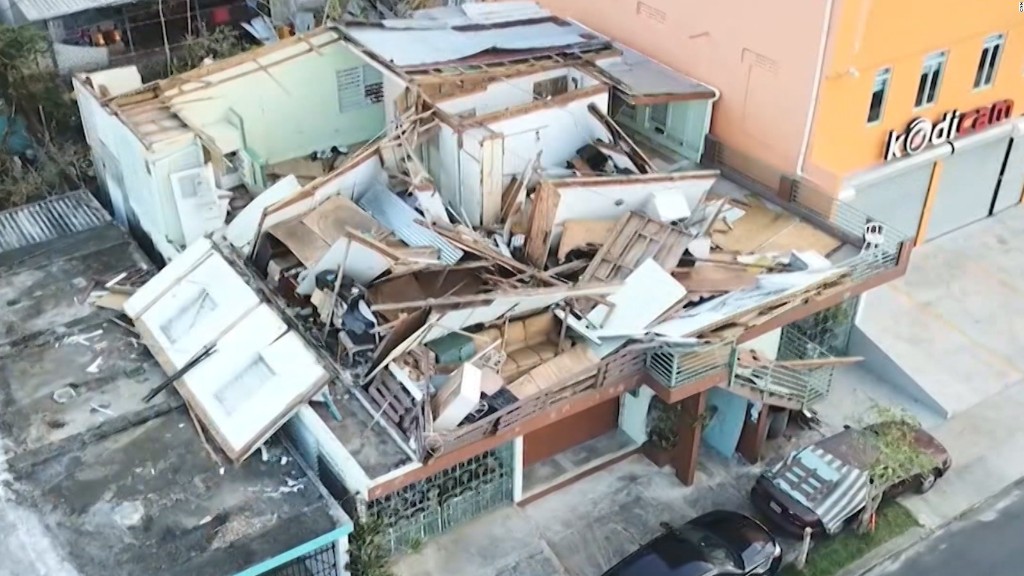
When the call went through, Carmen Colon Rodriguez could not hold back her tears.
She had been worried sick about when she would be able to reach family in Pennsylvania to tell them about the devastation that Hurricane Maria brought on her home in Guayama, Puerto Rico.
This weekend she was finally able to use a satellite phone provided by a CNN reporter to call her son and relay her harrowing experience.
"I lost my house, I lost my house," she told him in Spanish. "You don't know the suffering that we have gone through."
She and her boyfriend, Natividad Figueroa, were alive. But their lives were in disrepair. The roof of her house had been ripped off by the storm. She had to convert her laundry room into a makeshift bedroom. Relief workers were nowhere to be seen.
And without reliable communication lines, she had been cut off from the outside world.
"I didn't have any way of communicating with you," she told her son. "If it weren't for these girls, I wouldn't have been able to call."
Nearly two weeks after Maria ravaged Puerto Rico, the U.S. territory is still reckoning with the aftermath. And among the biggest obstacles is a paralyzing inability for many people on the island to call anyone else.
According to the Federal Communications Commission, about 88% of cell sites on the island were still out of service on Monday. Only 40% of people on the island have wifi, cell service or internet access, according to Puerto Rican officials.
Related: Trump's FCC criticized for hurricane response
Cell phone companies are working to restore service. T-Mobile (TMUS) told CNNMoney on Sunday that it is "making progress with repairs and seeing more sites coming back online, but it's going to be a long road to recovery."
Sprint said Monday that it has sent equipment to the island, including a chartered cargo flight this week that delivered generators, satellite equipment and other supplies.
AT&T (T) has sent at least four chartered planes with supplies and personnel to the island, and plans to send more soon.
The company added that it is powering its equipment using more than 50 generators on the island. AT&T said Monday that it is connecting more than 8 million calls and 4 million texts a day over its network on the island.
(AT&T has agreed to acquire Time Warner, the parent company of CNN. The deal is pending regulatory approval.)
The island faces an immense challenge to get the power back on and communications up again.
Cell sites in Puerto Rico are running on generators that need diesel fuel. In at least one case, fuel was stolen out of a generator, Luis Romero, the vice president of the Puerto Rico Telecommunications Alliance, told CNNMoney in an interview last week.
Workers also need gasoline to drive between work sites and their homes, and they risk being held up at gunpoint on the road.
--CNNMoney's Jackie Wattles and Seth Fiegerman contributed to this story.
